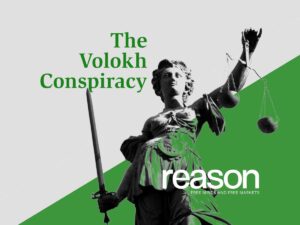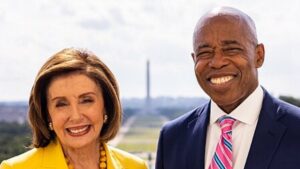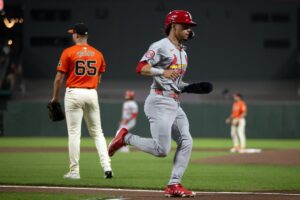[ad_1]
The California Supreme Court docket deserves two cheers for its unanimous choice final month upholding the constitutionality of Proposition 22—the 2020 poll initiative that exempted ride-sharing and supply drivers from the state’s ban on impartial contracting and supplied drivers with a couple of advantages. The ruling is a large win for the gig economic system, thus permitting Uber, Lyft, DoorDash, and others to proceed providing their useful companies.
Why am I withholding that cherished third cheer? Effectively, the state excessive courtroom in 2018 sparked this disruptive fracas over impartial contracting with its overreaching Dynamex choice. In that case, the courtroom—additionally unanimously—concocted an “ABC Take a look at” for figuring out whether or not firms can use contractors as staff. No must go over the check’s trivialities, however firms may solely rent impartial staff in slender circumstances.
That sparked what grew to become a six-year marketing campaign by California Democrats and their union puppet masters to basically shutter the state’s complete freelance business. Below the management of then-Meeting member Lorena Gonzalez—now appropriately the chief of a state union—the Legislature handed Meeting Invoice 5 codifying the Dynamex ruling. Then the layoff notices hit the fan, as firms began dumping the state’s freelance staff.
This was an effort to, as Democratic leaders described it, battle “wage theft”—supposed efforts by firms to get across the state’s voluminous labor edicts and mandated profit guidelines by hiring contractors and freelancers. In actuality, it was a fastidiously orchestrated by the state’s unions to crush the competitors by remodeling the choice enterprise mannequin. Contractors and freelancers are arduous to prepare, so the unions did what they do finest: destroy stuff.
It is easy to neglect now, however the impartial contracting ban solid a broad web, resulting in disruptions in each type of business. Many staff already had worker advantages (the supposed purpose for limiting contracting) however virtually pressured them to surrender their extracurricular money-making actions. The ban threw musicians, actors, photographers and a number of others out of labor.
Even worse, the state doubled down on A.B. 5 implementation within the midst of the pandemic, thus imperiling at-home work (and meals deliveries) when most Individuals have been struggling to make ends meet throughout state-imposed stay-at-home orders.
It was vile. And it was made extra so by the callous, “allow them to eat cake” attitudes of Gonzalez and different government-worker sorts who did not care that almost all of their fellow residents did not have a taxpayer-provided paycheck to depend on. Gonzalez famously tweeted, “These have been by no means good jobs. Nobody has ever instructed that, even freelancers.” But most freelancers I do know choose the pliability of such work to 9-5 schedules within the salt mine or cubicle.
Survey after survey—to not point out the anecdotal proof one will get from speaking to, say, any Uber driver—confirmed that the overwhelming majority of those drivers like the power to set their very own schedules and earn slightly additional money between different jobs or courses. The Legislature relented a bit, thus exempting greater than 100 business classes from A.B. 5 (although it refused to relent for the trucking business, regardless of its significance).
After which the ride-sharing business confirmed true moxie by qualifying Proposition 22 for a statewide vote. California’s Democratic-leaning citizens supported that measure by a powerful 59-41 p.c margin, however the unions, Gov. Gavin Newsom, and Democratic leaders displayed an almost Trumpian refusal to confess defeat and transfer on.
The businesses challenged A.B. 5 on federal grounds, arguing (appropriately, I consider) that the Legislature focused these specific firms. A 3-judge panel of the ninth Circuit Court docket of Appeals agreed, however that discovering was overturned by an 11-judge panel. The U.S. Supreme Court docket handed on Uber’s enchantment—and the scenario regarded dismal from there. I did not anticipate a lot from the California Supreme Court docket given its authentic ruling, however I used to be pleasantly shocked.
In its July 25 choice, the courtroom “reaffirms that Proposition 22 doesn’t infringe upon the California Legislature’s authority to manage staff’ compensation methods,” because the authorized web site JDSupra defined. These app-based ride-sharing and supply firms can proceed working with out turning their drivers into everlasting workers. That is an enormous reduction for the business and California customers.
However the publication notes “the Legislature may contemplate extending staff’ compensation advantages to drivers and making such advantages obligatory.” Given the political may of the state’s unions, I would not put it previous lawmakers to proceed their assaults on this business. Sooner or later, nonetheless, even Democrats may wish to say “sufficient already.”
All the episode brings up the plain query: “Why”? For six years, the state has been making an attempt to impose laws on an business that will undermine its elementary mannequin and obliterate jobs. They’re telegraphing to others that in case you develop an awesome concept this state will spend years making an attempt to crush you. Possibly the California Supreme Court docket will bail you out ultimately, however who has sufficient time, cash and blood-pressure medication to wish to hassle?
This column was first printed in The Orange County Register.
[ad_2]





